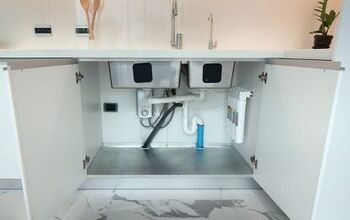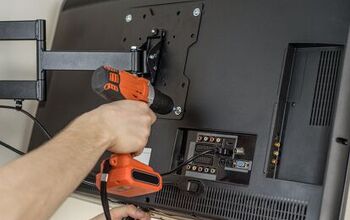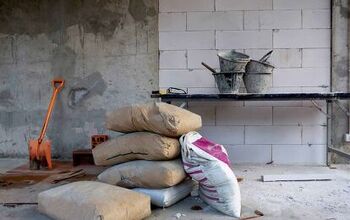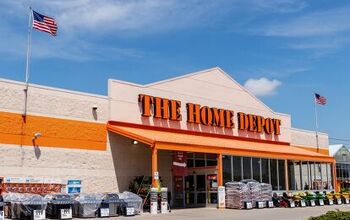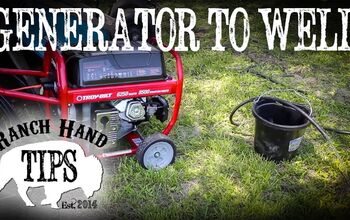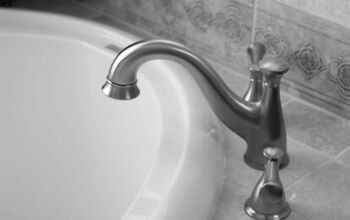What Size Boiler Do I Need For A 2000 Sq Ft House?

Heating your home with water and a boiler is not all that common in the United States. However, this type of heating, called hydronic heating, is quite common in other areas. In some cases, hydronic heating can be an efficient means of heating your home. If you have a 2000 square foot home, what size boiler do you need?
In general, a good rule of thumb is to estimate that you will need about 30 BTUs of thermal output per square foot of home. To adequately heat a 2,000 square foot home, you need a boiler that will produce 60,000 BTUs.
Before you go any further, you must understand that this is a rough estimate. Your needs may vary widely based on several factors. These factors include
- The age and condition of your home
- The number of doors and windows and their construction type and quality
- The region of the country
- Room sizes and the layout of the home
- Are you just heating your home, or will the boiler produce domestic hot water as well?
Do You Need Radiator and Boiler Installers?
Get free, zero-commitment quotes from pro contractors near you.

Boilers, BTU’s, and Bucks
Bigger is not always better, especially in the boiler game. An over-sized boiler installed in your home is uneconomical in several ways. Installing a boiler larger than needed wastes money upfront on the purchase and an over-sized boiler may be less efficient in operations than a properly sized boiler.
A boiler too small for your home may save a bit of money on the initial purchase, but the boiler will operate harder and longer, wasting money on fuel in the long run. The small boiler may also have a shorter life due to the stresses of overworking.
Boilers in the Basement – A New Paradigm
The modern boiler in the basement is no longer the hulking cast-iron behemoth of the past. Today’s boilers are smaller and much more efficient at their job. Technology has transformed hydronic heating into a must more cost-effective means of heating homes. In many areas of the country, hydronic heating is seeing a resurgence among new home builders.
Understanding BTUs – Why Are We Using British Measurements?
First, let’s get the science out of the way. A BUT is a simple measurement. One BTU is a measurement of the energy required to raise one pound of water temperature by one degree. Yes. That sounds simple enough.
The term, British Thermal Unit, has become the standard for rating heat transfer around the world. It has nothing to do with the British other than where and who developed the formula.
It’s All About What You Get from the Boiler
But how does that translate to heating my home and boiler size? What does it mean when a boiler label says the boiler produces 80,000 BTUs? In most instances, the ratings on your boiler label are really BTU/h or British Thermal Unit per hour.
BTU/h is a rating of how much heat is available from the water circulated through your home for heating. This rating is useful for calculating how large a boiler to purchase to heat a given space adequately.
Figuring in the Bucks – The Costs go Beyond the Purchase
When choosing and sizing a boiler, other costs affect your decision. The upfront cost of purchasing and installing the boiler is two of the considerations. However, ongoing costs such as fuel expense, maintenance, and the boiler expected life-span figure in the decision.
Sizing your boiler closely to your home requirements is essential in finding the correct initial cost and operating costs ratio. The need to know the requirements for your home and needs drive boiler sizing and selection.
Before You Shop, Do Your Home Work
Before you start shopping for a new boiler, you should do a little home work, not homework. You need to systematically survey your home to figure out how many BTUs you need to keep your home comfortable.
Doing this sort of home work may sound daunting. However, there are several good home heating calculators on the internet. The calculators typically ask a series of questions about your home and lifestyle. Using this information, the calculator assigns points to specific needs and requirements and produces a BTU assessment.
One other option, and a better one for many people, is to get your HVAC professional to conduct a needs assessment on your home and make a recommendation on a boiler. The assessment your HVAC professional will perform is much more in-depth than using an online calculator.
What an HVAC Professional will Consider
During a professional assessment, an HVAC technician will look at your home from top to bottom and check several factors that can affect your heating requirements.
Your Location and Climate
Different areas have different heating needs based on the climate and the location. Northern locations where winters are long and the cold more intense require higher BUT ratings than homes in the semi-desert southwest.
Sun Exposure
Do evergreen trees heavily shade your house. If you live where winters can get intense, the shade of trees can increase your heating requirements. How your house is situated and where the windows face is important in figuring heat gain in the winter from sunlight on southern exposures.
Insulation Factors
How well is your house insulated? Calculating how well your home insulation performs is critical in determining the heat loss that you suffer. This heat loss calculation also considers the weather tightness of your doors and windows.
The Number and Location of Windows and Doors
Windows and doors add to the BTU load required to heat a home. If your home has larger windows and doors, you can expect the BTU requirement to be greater. The need for additional BUTs is especially true if your home has large glass doors serving patios or other outdoor areas.
Ceiling Heights and Special Areas
Homes with higher ceilings or areas where there are lofts or other extended height areas require extra BTUs to heat these larger spaces. A professional survey of your home will take these spaces into consideration
Occupant Load
How many people normally occupy the home is a large factor. If your boiler provides domestic hot water and space heating, the boiler’s BTU rating must reflect this extra load.
What Your HVAC Professional Will Provide
After the survey, your HVAC professional will present you with a comprehensive assessment of your heating needs. The HVAC technician will also make recommendations about the size, style, and features of the boilers that may best fit your needs.
What is AFUE? And Why is it Important?
AFUE is an acronym for Annual Fuel Utilization Efficiency. This number is a rating that shows how efficient your boiler converts fuel into heating energy. The larger the number, the more efficient the boiler.
For example, a boiler with an AFUE of 85 typically converts 85 percent of the available energy produces by burning fuel into useable heating energy. The other 15 percent of the energy is lost up the flue in waste gases.
What AFUE Should I Chose?
The best option is to choose the boiler with the highest AFUE you can find in most cases. Having a boiler with the highest AFUE means that you are capturing as much heat from the fuel as possible. More heat from the fuel translates into lower overall operating costs. You burn less fuel for more heat.
A Note About Fuels
Different fuels have different BUT ratings and yield different AFUE ratings. The primary sources of fuel for boiler operations are
- Oil
- Natural Gas
- Propane
- Electricity
Fuel Oil
Fuel oil is attractive because it produces more heat per BTU than any other fuel. However, oil-fired boilers require an on-site fuel tank, regular fuel delivers, and typically require more maintenance than other types of boilers.
Natural Gas
Natural gas is probably the most widely used fuel for firing boilers. Natural gas boilers are highly efficient and fuel costs are typically low. However, not every place has natural gas pipelines. Natural gas boilers are quieter and require less maintenance. Natural gas is less efficient in producing BTUs than fuel oil.
Propane
Propane is an excellent substitute for natural gas. Like fuel oil, heating with propane requires an on-site tank and extra plumbing. Your boiler may need modification to burn propane, but most plumbers or propane providers can make these adjustments.
Electricity
Electricity rates vary widely across the country. If you live in an area with cheap and abundant electricity, an electrically heated boiler may be the most economical option. A good electric boiler may have an AFUE rating approaching 100. Almost all the electrical energy becomes heat for your home.
Do You Need Radiator and Boiler Installers?
Get free, zero-commitment quotes from pro contractors near you.

Making the Decision – Good Information is the Key
Don’t depend on basic estimations when choosing a boiler for heating your home. Making a sound decision requires good data and proper techniques. Before you purchase a boiler, consult an HVAC professional who can do a proper survey of your home to determine your precise needs. The extra effort will pay off in more efficient operation, lower costs, and a longer life for your boiler.

Dennis is a retired firefighter with an extensive background in construction, home improvement, and remodeling. He worked in the trades part-time while serving as an active firefighter. On his retirement, he started a remodeling and home repair business, which he ran for several years.
More by Dennis Howard



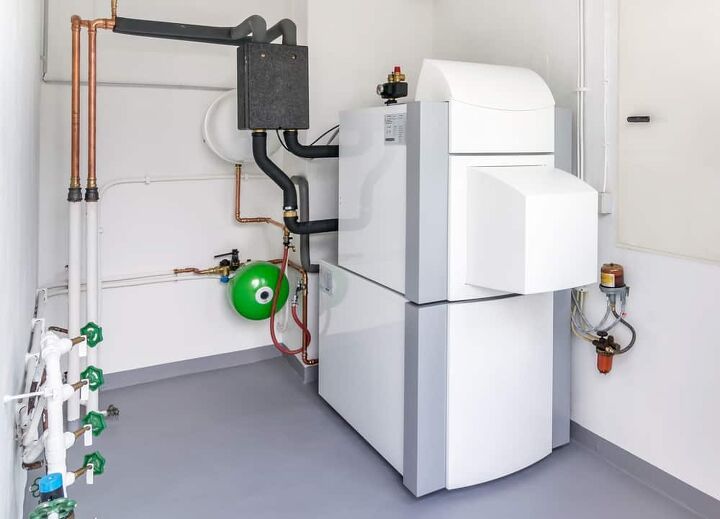






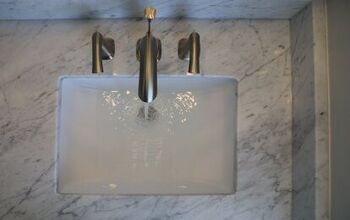


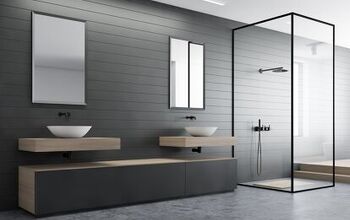
![10 Best Electric Pressure Washers – [2022 Reviews & Guide]](https://cdn-fastly.upgradedhome.com/media/2023/07/31/9070600/10-best-electric-pressure-washers-2022-reviews-guide.jpg?size=350x220)
